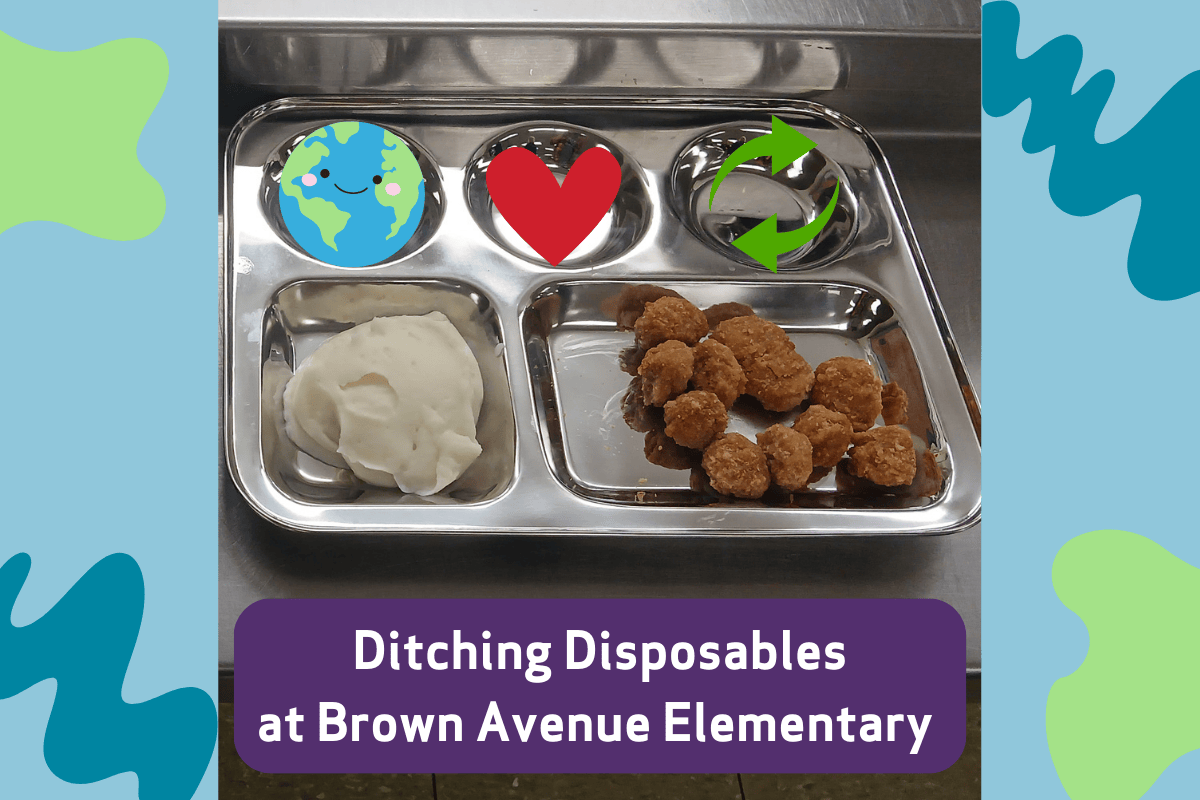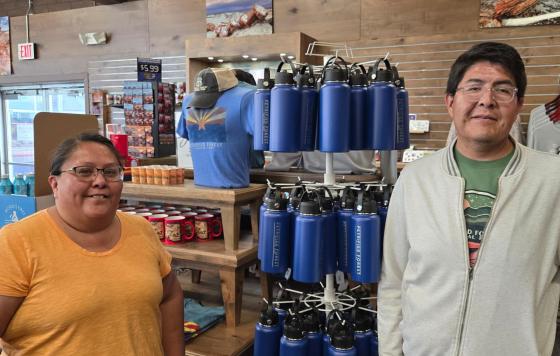
The volunteer student “rangers” stand ready beside the cafeteria waste station. They sort each student’s compostable food scraps, recyclable items, and reusable trays and sporks. Their mission? Keep waste out of the nearby landfill. Brown Avenue Elementary School in Johnston, RI is part of a reuse revolution keeping tons of waste out of the trash, saving their school money, and quietly changing our relationship with a disposable lifestyle.
Amber Schmidt, Clean Water Action’s New England Zero Waste Specialist, has been organizing restaurants, community kitchens, and even a triathlon to replace their single-use disposable food ware with reusables through the ReThink Disposable campaign. But she is seeing some of the biggest impacts happening at schools.
“Schools know exactly what they spend on the purchasing of disposable trays, plastic utensils, plates, cups, etc, so it is easy to demonstrate how the schools will save money over time by replacing those disposable items with durable reusables. Doing the right thing for the environment is also the right thing for their budgets,” she explained.
In Rhode Island, the transition away from disposable cafeteria items is being supercharged by the 2023 law banning disposable polystyrene foam food ware, which Clean Water Action supported. The law took effect on New Year’s Day, and the Rhode Island Department of Education has made “Get the Foam Out” grants available to schools to help them make the switch.
At Brown Avenue School, all of this good work came together. Amber helped the school price and source stainless steel trays and sporks, create a plan and a budget for washing them, and access funding to purchase them from a “Get the Foam Out Grant.” Working together with the Rhode Island School Recycling Project, the school also implemented a strategy to separate food scraps for composting and help students properly recycle items like plastic water bottles. The enthusiastic corps of “rangers” help fellow students put everything in the proper receptacles.
“This is a win-win-win,” Amber explained. “The kids are eating on safe trays rather than toxic polystyrene. The school is saving money. And we are keeping items out of the landfill. Plus, the kids are learning and helping their own community in a hands-on way.”
To learn more about how your school or business can participate in ReThink Disposable, please visit rethinkdisposable.org.
And check out this coverage of Brown Avenue School’s efforts in the Washington Post!


